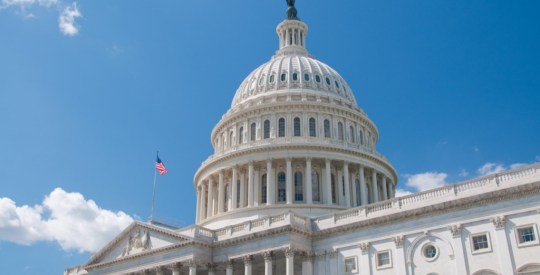Title insurance provides vital protection to the largest and most important purchase most Americans will ever make—their home. Without this essential product, owners could be forced to pay out of pocket to settle costly challenges to their ownership rights—or even worse—lose their home.
Unfortunately, the Consumer Financial Protection Bureau (CFPB) recently issued a Request for Information (RFI) on mortgage closing costs—including title insurance—that continues a concerning pattern of labeling legitimate, well-regulated, and transparently disclosed costs and services as “junk fees.”
The agency alleges that so-called hidden “junk fees” in closing costs are at the root of housing affordability challenges. However, the term “junk fee” is vague and subjective and should never be used to describe title insurance—a crucial product that protects homeowners and their property rights to the largest asset most consumers will ever have. Director Rohit Chopra himself, in a recent appearance before the House Financial Services Committee, shook his head “no” when asked whether title insurance was a “junk fee” in questioning from Rep. Brad Sherman (D-CA).
Title insurance products are comprehensively regulated at the state level by departments of insurance, and title insurance companies are required to file their policies and rates with state regulators to ensure they are fair, non-discriminatory, and adequately protect consumers—all of which must be justified using actuarially supported data. It is also important to note that CFPB has no authority to regulate insurance products or pricing, as that is the distinct purview of the states—which the Bureau itself has clearly acknowledged numerous times on the record to policymakers on Capitol Hill.
The services provided by title professionals and the long-term protection title insurance provides are the least expensive, yet the most essential components of the homebuying process. Despite increased inflation, our industry has continued to innovate to improve efficiency, which over the last five years has led to a 5% decrease in the cost of title insurance coverage.
The one-time fee paid at closing is transparent and comprehensively regulated, and most importantly, protects consumers’ property rights. Without it, consumers would be exposed to great financial risk. Far from being “hidden,” title insurance fees and other closing costs must be provided and disclosed to consumers as required by the TILA-RESPA Integrated Disclosure (TRID) rule—which was developed by the CFPB in 2015 after significant consumer testing and hundreds of millions of dollars invested in partnership with our industry and others. Five years later, the agency gave itself a pat on the back when its own research showed the TRID rule improved “consumers’ ability to locate key information, compare terms and costs between initial disclosures and final disclosures, and compare terms and costs across mortgage offers.”
Purchasing a home is a significant milestone for most Americans, and the title industry wants to protect that purchase, which is why title professionals go beyond just issuing a title insurance policy and calling it a day. They cure defects in the chain of title that could jeopardize a new homebuyer’s dream, collect $3 billion annually in unpaid federal and property taxes and child support as well as rectify other liens that might not otherwise be found. According to a recent study, title professionals spend approximately 22 hours to close a standard transaction and 45 hours on more difficult transactions, which make up 36% of all transactions.
They also combat fraud schemes, like wire and seller impersonation fraud. Fraud and forgery claims represent 21% of the total dollars spent by title insurers on claims expenses and losses, with the average fraud and forgery claim cost exceeding $143,000. No one is immune from such schemes—even Graceland, Elvis Presley’s famous estate, was almost auctioned off last month in a brazen example of seller impersonation fraud.
In addition to being an essential consumer protection, the title industry significantly impacts the economy. The total contribution of U.S. title and settlement companies in 2022 was an estimated 560,000 workers earning $43 billion in wages and benefits and generating $82 billion of GDP in the United States. Directly, U.S. title and settlement companies employed 155,000 workers and generated $30 billion of GDP. The overwhelming majority—90 percent—of title insurance companies nationwide are small businesses.
ALTA appreciates the opportunity to educate federal agencies about the title insurance market and collaborate on thoughtful approaches to address housing affordability challenges. We strongly believe that title insurance, and the essential protection it provides, is something that consumer protection agencies and advocates should be supporting, not questioning.
This column does not necessarily reflect the opinion of HousingWire’s editorial department and its owners.
To contact the editor responsible for this piece: [email protected]





